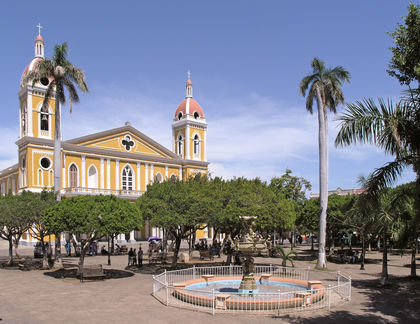
Overall, the Nicaraguan government respects the freedom of religion, which is guaranteed in the Nicaraguan constitution. Churches must be legally recognized in order to enter into contracts and attain legal benefits and obligations. In order to gain a legal standing, religious organizations are required to undergo a legal recognition process similar to other nongovernmental organizations.
Religious organizations must apply for legal standing, which must be approved by the National Assembly. Once this process has been completed, the organization is then required to register with the Ministry of Government as an association or foundation, which enables the religious organization to receive legal recognition from the government.
Although the Nicaraguan constitution declares that the country has no official religion, 80 percent of its 5.7 million citizens belong to Christian groups. According to the 2005 census by the Nicaraguan government, 58.5 percent of Nicaraguans consider themselves Roman Catholic, and 21.6 percent evangelical Protestants, which include members of the Assembly of God, Pentecostals, Mennonites, and Baptists. Less prominent religions in the country include the Moravian Church (1.6 percent), Jehovah Witnesses (.9 percent), The Church of Jesus Christ of Latter-day Saints, Church of God, Church of the Nazarene, and Seventh-day Adventists. Non-Christian religions have even fewer percentages. There are about 300 Muslims and a Jewish community of only 40 permanent members. Approximately sixteen percent of the population claims no religion at all.
Historically, the Roman Catholic Church had a close relationship with the government as bishops were expected to lend their authority to important governmental matters. During that time, the church had carried significant influence with the government, and currently, its opinion still carries some weight. However, evangelicalism has rapidly increased over the past ten years, and a few evangelical groups have gained some power with the government due to their association with the Sandinista National Liberation Front (FSLN), the political party currently in office. These select evangelical groups receive favors and preferential access to state funds.
On the other hand, the Nicaraguan government has little tolerance for religious groups and leaders who speak negatively regarding the government. When a religious organization denounces alleged government wrongdoings, they tend to receive less access to government services. In addition, even though the government does not officially interrupt the actual practices of religious worship and attendance at church, the FSLN and government workers have been known to use other means to disrupt church functions and the freedom to worship. Furthermore, in 2007, President Daniel Ortega Saavedra set up Citizen Power Councils (CPCs) to give the people the “right . . . to exercise power” and administer antipoverty programs. However, various church groups have expressed concern regarding these councils and the power they exercise over religious activity. Not only do churches need permission from CPCs to hold community service programs and public meetings, but CPCs have also organized protests to disrupt church activities and harass religious leaders who publicly criticize the government.